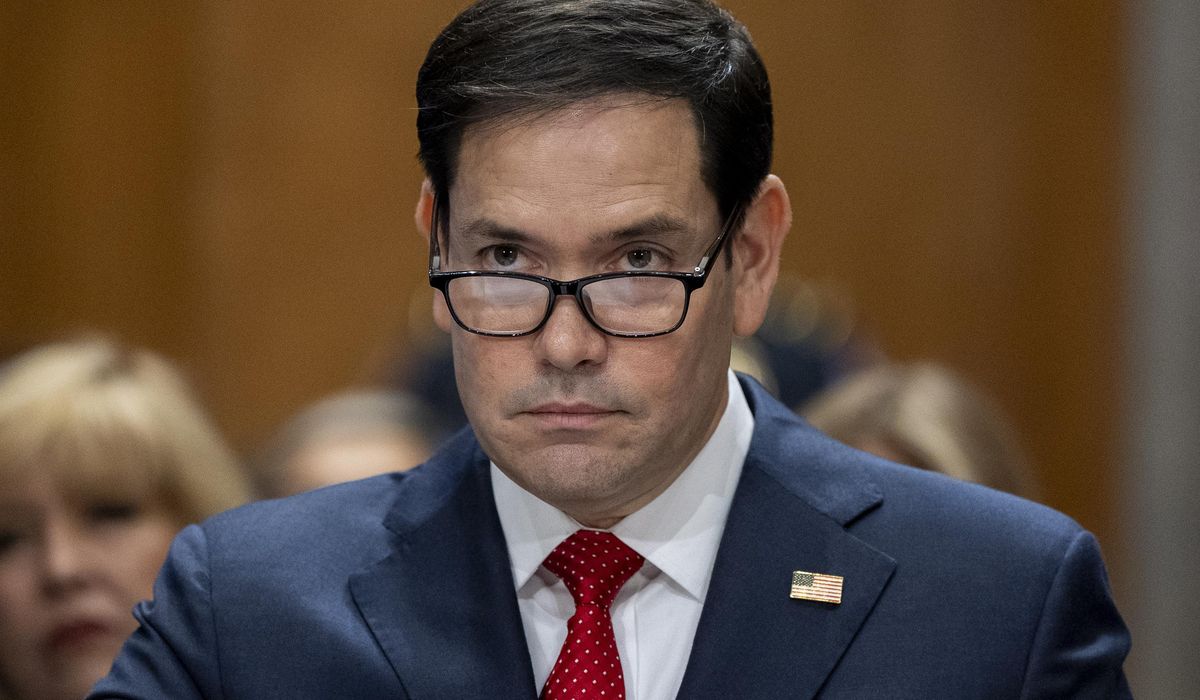


The Senate Foreign Relations Committee late Monday afternoon approved Marco Rubio’s nomination unanimously to serve as secretary of state, and a floor vote on his confirmation is expected later in the night.
Mr. Rubio, the outgoing senior senator from Florida, had bipartisan support from his colleagues on the Foreign Relations Committee, where he was previously a senior member of the panel. The vote was 22-0.
His nomination is the first to be approved by a Senate committee and is expected to be the only one to get a floor vote on Inauguration Day.
Senate Foreign Relations Chairman James E. Risch, Idaho Republican, said Mr. Rubio in his confirmation hearing last week “was flawless in his presentation of American foreign policy.”
The Senate Intelligence Committee approved John Ratcliffe’s nomination to serve again as the director of the Central Intelligence Agency, as he did under Mr. Trump’s first term. The committee vote was closed but three senators voted no, according to Sen. Mark Warner, the panel’s top Democrat. Mr. Warner of Virginia voted yes.
Two other nominees for top positions on Mr. Trump’s national security team, Pete Hegseth for defense secretary and Kristi Noem for homeland security secretary, were also expected to be approved by committees on Monday evening.
President Trump, soon after taking his oath of office, formally submitted a slate of his top nominees to the Senate on Monday afternoon.
Republicans are prioritizing their nominations for floor action, but how quickly they see confirmation votes depends on the cooperation of Democrats.
All 100 senators would need to consent to a time agreement to hold any confirmation votes on Mr. Trump’s first day in office, and Mr. Rubio may end up being the only nominee who receives unanimous backing to advance.
Mr. Risch said he did not expect any senators to object to holding Mr. Rubio’s confirmation vote on Monday.
In 2017, the Senate confirmed two of Mr. Trump’s Cabinet nominees, Defense Secretary James Mattis and Homeland Security Secretary John Kelly.
In 2021, President Biden got one Cabinet-level nomination confirmed on Inauguration Day when the Senate approved Avril Haines as his director of National Intelligence. Two days later, the Senate confirmed his Defense Secretary Lloyd Austin, and other Cabinet nominees followed at a relatively slow pace.
Senate Majority Leader John Thune, South Dakota Republican, has set a goal of confirming Cabinet nominees more quickly than in the two previous administrations. He wants to return to the 2009 standard set when the Senate confirmed 12 of President Obama’s Cabinet secretaries within 15 days of his taking office.
• Lindsey McPherson can be reached at lmcpherson@washingtontimes.com.
